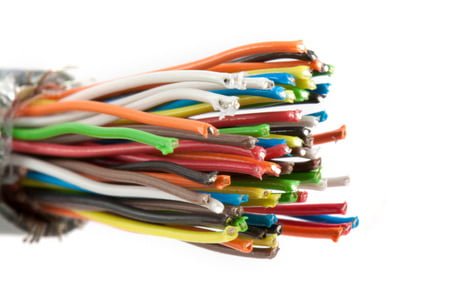Decoding Cable Colors and Their Significance
When it comes to wire and cable color codes, one common question is whether there’s an industry standard. While organizations like the Institute of Electrical and Electronics Engineers (IEEE) offer some guidance, there isn’t a universally accepted standard. Instead, private industries, especially telecommunications, lead the way in standardization efforts.

Understanding Cable Color Standards
It’s crucial to recognize that cable color standards vary widely across industries and even countries. For instance, the telecommunications boom following the introduction of smartphones in 2007 led to diverse color schemes reflecting different implementation timelines.
Lebih-lebih lagi, global supply chains mean that companies source cables from various countries, each with its own color conventions. Despite guidance from IEEE, the Telecommunications Industry Association (TIA), and others, true standardization remains elusive.
Deciphering Ethernet Cable Colors
Ethernet cables, ubiquitous in computer networking, come in various colors, but no single color indicates superior performance. Instead, colors often signify specific applications. Common colors like grey, biru, kuning, orange, and white dominate, with black reserved for outdoor use.
Interpreting Ethernet Cable Colors
The meaning of Ethernet cable colors can vary based on context. For instance, the Department of Defense (DoD) employs different colors to classify data confidentiality levels: yellow for top-secret, red for mid-level, and blue for unclassified data.
While there’s no universal standard dictating one color over another, certain patterns emerge:
- Gray Ethernet: Typically represents standard Ethernet connections.
- Green Ethernet: Indicates a crossover connection for linking different devices directly.
- Yellow Ethernet: Reserved for Power over Ethernet (PoE) connections, established by IEEE to deliver power through Ethernet cables.
- Blue Ethernet: Often used for terminal server connections, facilitating multiple system connections to a LAN without a modem.
- Patch Cable Color Standards
While ANSI/TIA publishes patch cable color standards, universal adoption remains elusive. Some institutions, like the University of Wisconsin Network Services Department, set color standards internally. Misalnya:
- Abu-abu: Standard Ethernet connections
- Hijau: Crossover Ethernet connections
- Yellow: PoE connections
- Oranye: Koneksi analog non-eternet
- Ungu: Koneksi Digital Nonhernet
- Biru: Koneksi Server Terminal
- Merah: Kamera IP
- Hitam, Berwarna merah muda, dan putih: Opsi tambahan

Navigating Cat6 Cable Colors
Kabel CAT6, Jaringan Ethernet yang umum, melekat pada kode warna eksternal, berbeda dari warna kawat bengkok internal. Sementara standar industri jarang terjadi, Warna CAT6 yang khas termasuk biru untuk konektivitas jaringan, Kamera Keamanan Kuning Untuk Kabel, dan putih atau abu -abu untuk interkoneksi.
Network Cable Color Chart
Meskipun standar warna yang bervariasi, Ansi/TIA/EIA-606-A menawarkan pedoman komprehensif untuk infrastruktur telekomunikasi. Bagan pihak ketiga berdasarkan standar ini memberikan referensi untuk pengkodean warna kabel.
Custom Cable Assembly Solutions
Di Surxin, Kami berspesialisasi dalam pembuatan kabel khusus yang disesuaikan dengan spesifikasi klien. Dengan pengalaman yang luas dan kemampuan mutakhir, Kami merancang skema warna untuk integrasi yang mulus ke dalam sistem yang ada. Contact us today to discuss your project requirements.
By reorganizing and condensing the information, this guide provides a comprehensive overview of cable colors and their significance across various applications.
